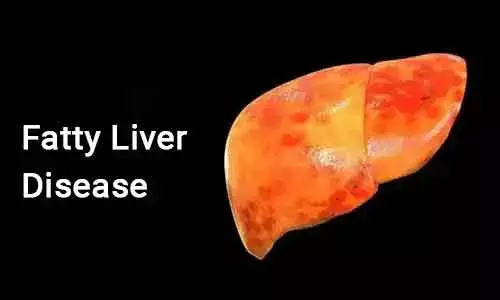- Home
- Medical news & Guidelines
- Anesthesiology
- Cardiology and CTVS
- Critical Care
- Dentistry
- Dermatology
- Diabetes and Endocrinology
- ENT
- Gastroenterology
- Medicine
- Nephrology
- Neurology
- Obstretics-Gynaecology
- Oncology
- Ophthalmology
- Orthopaedics
- Pediatrics-Neonatology
- Psychiatry
- Pulmonology
- Radiology
- Surgery
- Urology
- Laboratory Medicine
- Diet
- Nursing
- Paramedical
- Physiotherapy
- Health news
- Fact Check
- Bone Health Fact Check
- Brain Health Fact Check
- Cancer Related Fact Check
- Child Care Fact Check
- Dental and oral health fact check
- Diabetes and metabolic health fact check
- Diet and Nutrition Fact Check
- Eye and ENT Care Fact Check
- Fitness fact check
- Gut health fact check
- Heart health fact check
- Kidney health fact check
- Medical education fact check
- Men's health fact check
- Respiratory fact check
- Skin and hair care fact check
- Vaccine and Immunization fact check
- Women's health fact check
- AYUSH
- State News
- Andaman and Nicobar Islands
- Andhra Pradesh
- Arunachal Pradesh
- Assam
- Bihar
- Chandigarh
- Chattisgarh
- Dadra and Nagar Haveli
- Daman and Diu
- Delhi
- Goa
- Gujarat
- Haryana
- Himachal Pradesh
- Jammu & Kashmir
- Jharkhand
- Karnataka
- Kerala
- Ladakh
- Lakshadweep
- Madhya Pradesh
- Maharashtra
- Manipur
- Meghalaya
- Mizoram
- Nagaland
- Odisha
- Puducherry
- Punjab
- Rajasthan
- Sikkim
- Tamil Nadu
- Telangana
- Tripura
- Uttar Pradesh
- Uttrakhand
- West Bengal
- Medical Education
- Industry
Is serum vitamin D level related to metabolic associated fatty liver disease?

China: A recent study in the Scandinavian Journal of Gastroenterology has revealed a non-linear relationship between serum vitamin D and metabolic associated fatty liver disease (MAFLD). At negative corelation was detected between serum vitamin and MAFLD when the serum vitamin D level was ≥44.6 nmol/L (17.84 ng/mL). Below this level, serum vitamin D might promote MAFLD progression.
Previous studies have shown that vitamin D is an important factor for MAFLD, however, there has been no consistent conclusion. Considering this, Tingting Wang, Department of Gastroenterology, The First Affiliated Hospital of Wenzhou Medical University, Wenzhou, China, and colleagues aimed to examine the effect of serum vitamin D on MAFLD in a large population-based study.
83,625 out of 427,507 subjects who underwent health examination met the inclusion criteria and were included in a cross-sectional analysis. The researchers collected clinical and laboratory data for analysis. Abdominal imaging was used for diagnosing MAFLD.
Following were the key findings of the study:
- Multivariate linear regression models discovered a negative association between serum vitamin D and MAFLD (OR: 0.92), after adjusting for other well-identified risk factors.
- The same result was found when serum vitamin D was handled as a categorical variable (quartile, Q1–Q4) (Q4 vs. Q1, OR: 0.82), and a significant linear trend was observed.
- After analysis, a nonlinear relationship was detected between serum vitamin D and MAFLD, with an inflection point of 2.23 (44.6 nmol/L or 17.84 ng/mL).
- The effect sizes and the confidence intervals on the left and right sides of the inflection point were 1.16 and 0.89, respectively.
- All interactions with MAFLD were not significant for age, sex, diabetes, hypertension, smoking and body mass index.
"We observed a nonlinear relationship between serum vitamin D and MAFLD," wrote the authors. "A negative correlation between serum vitamin D and MAFLD was detected when the serum vitamin D level was ≥44.6 nmol/L (17.84 ng/mL). Below this level, serum vitamin D might promote the progression of MAFLD."
Reference:
The study titled, "Effect of serum vitamin D on metabolic associated fatty liver disease: a large population-based study," was published in the Scandinavian Journal of Gastroenterology.
Dr Kamal Kant Kohli-MBBS, DTCD- a chest specialist with more than 30 years of practice and a flair for writing clinical articles, Dr Kamal Kant Kohli joined Medical Dialogues as a Chief Editor of Medical News. Besides writing articles, as an editor, he proofreads and verifies all the medical content published on Medical Dialogues including those coming from journals, studies,medical conferences,guidelines etc. Email: drkohli@medicaldialogues.in. Contact no. 011-43720751


